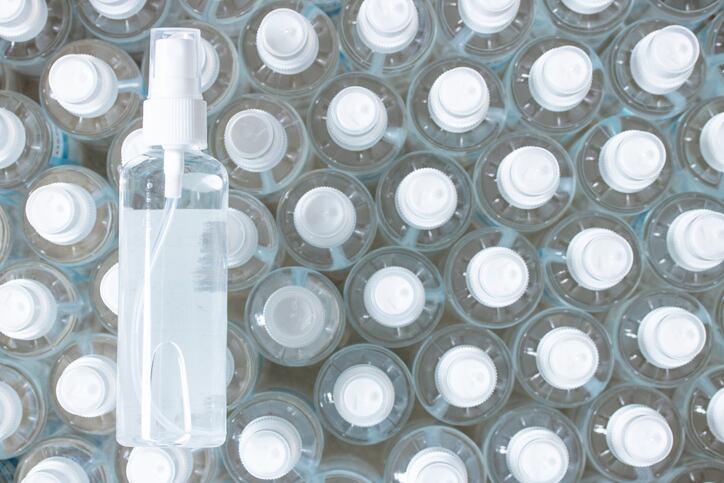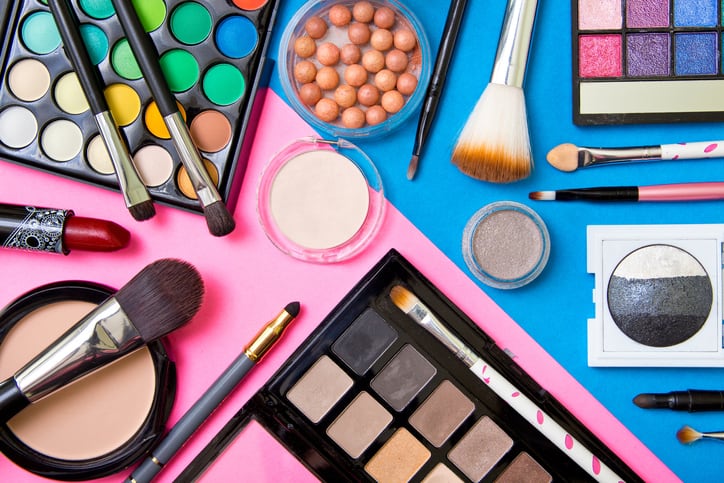As most of the world is currently in quarantine, with lots of shops that sell cosmetics closed, cosmetic manufacturers and distributors are looking at online channels to sell their cosmetics and keep business afloat.
But there are some important compliancy issues to consider when making the move online, like whether products need to remain compliant with the national legislation of the countries where they are sold, even if they have been shipped from another country directly to the end consumer.
This article takes a look at some of the biggest global markets and those most affected by the COVID-19 crisis.
European Union
All of the cosmetic products placed on the EU market need to comply with the EU Cosmetics Regulation 1223/2009 - this regulation is currently still in use also in the UK. Cosmetic products sold online, whether they’re distributed to the end consumer from a warehouse in the EU, or shipped directly from a third country, still need to comply with the provisions of the Regulation. This also means that such products need to have an EU-based Responsible Person appointed and need to have a product information file (PIF) prepared. PIF contains all the most important information about the finished product, its ingredients, the packaging, manufacturing process and product labelling. PIF also includes cosmetic product safety report (CPSR), which represents the most valuable part of the PIF.
Products sold online in the EU also need to have the EU compliant labelling and have to be notified to the Cosmetic Product Notification Portal (CPNP) before they can be sold in any of the Member States.
Canada
Cosmetics products sold in Canada are regulated by Health Canada. They are subject to provisions of the Food and Drugs Act and the Cosmetics Regulations, which includes requirements regarding composition, safety, labelling and marketing of cosmetics. Furthermore, cosmetics must also comply with the provisions of the Consumer Packaging and Labelling Act and Consumer Packaging and Labelling Regulations.
The same requirements apply to all cosmetic products sold in Canada, regardless of the method of sale. Cosmetics sold online must, therefore, also comply with the requirements set out by the Canadian cosmetics regulation. That means they have to be safe for use, free of any prohibited substances or in case of restricted substances, in line with the conditions set out in Cosmetics Ingredient Hotlist. The Cosmetic Ingredient Hotlist also includes warnings that need to be displayed on the product, in case it contains certain restricted ingredients.
Like all cosmetics sold in Canada, those sold online also have to be properly labelled and notified to Health Canada within ten days of their first sale in Canada. Notification can be made by the manufacturer, importer, distributor or a notifier who acts on their behalf, by submitting the Cosmetic Notification Form (CFN).
USA
Similar to the EU and Canada, selling cosmetics online in the USA requires the same regulatory compliance as it does for cosmetics sold in stores. Cosmetic products are regulated by the Food and Drug Administration (FDA) and must comply with the Federal Food, Drug and Cosmetic Act (FD&C Act) and the Fair Packaging and Labeling Act (FPLA). Additionally, there are also some state-specific regulations, such as the California Proposition 65 (Prop 65), which must be considered when selling your products in the USA. The FDA also keeps a list of prohibited and restricted cosmetic ingredients, and it requires pre-market approval for colour additives used in cosmetics. It is therefore important to check that you are using an approved colour additive; otherwise, the product will be considered adulterated.
As it is in every country, the USA also has specific labelling requirements, which cosmetics must comply with. It is also important to stay in line with the cosmetic product definition by avoiding any drug-related or other non-cosmetic claims. As for registration, there is no pre-market approval needed for cosmetics sold in the USA, but companies are encouraged to participate in the Voluntary Cosmetic Registration Program (VCRP). However, it is important to note that the registration of the cosmetic product can only be done after the product is already being sold in the USA.
China
Selling cosmetics online in China is very different from selling cosmetics in stores in China. In addition to the general trade, China has developed Cross Border E-commerce (CBEC), which is international online trade. It enables end-users in China to buy products from foreign brands online. CBEC generally refers to the online trade of a selected list of goods that are imported from foreign countries via third-party e-commerce platforms, such as Tmall Global, Kaola, JD Worldwide etc.
Products sold via CBEC are regarded as personal goods and are therefore granted custom clearance. Currently, there are 21 categories of cosmetic products listed on the positive list, which can be imported via 87 CBEC pilot cities in China, including the whole of Hainan Province. This means they do not require pre-market registration, which greatly facilitates market access. By selling your products via CBEC, you can avoid all general trade-related regulatory requirements. This also means that the products don’t have to undergo animal testing, which is currently still mandatory and has to be done at approved labs in China.




